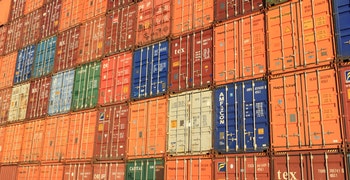Sales Tax Secrets: How to Tax Water

Water, water everywhere, but which drops should we tax?
When scanning through the various beverages that call themselves water, it’s pretty easy to go a little insane. Is water still water if it has electrolytes? What if it comes from a coconut? What if it isn’t clear? How exactly do you deal with the onslaught of new beverages intended to keep customers hydrated and suppliers insane? In some states, water is considered food. In others, it’s taxed. Certain features like sweetener can even kick it into the soft drink category. Here we’ll look at a five kinds of water and what to consider when taxing them.
1. Hydration and water are not one in the same.

First and foremost, what does the product call itself? If it doesn’t call itself water, it isn’t water. Sorry, Gatorade, you may quench our thirst, but you’re getting tossed over to the drink pile when it comes to taxability.
2. Just because it says it’s water doesn’t mean it is.

Take Vitamin Water. It calls itself water, so we have to give it that, but it has flavors and it’s sweetened. That’s a deal breaker for most states, so put that in a different tax category as well.
3. Some waters don’t come from a spring or a tap.

Let’s give coconut water some thought. It doesn’t taste like juice or even coconut milk for that matter. It basically tastes like water that has been sitting in a coconut. However, the fact that you have to hack into that bad boy to get the water out means that we can consider it a juice. From there, you need to look at what percentage of the beverage is made up of that juice to determine taxability.
4. Air can be extra flare.

Take a look at San Pellegrino. That’s definitely water, but it’s carbonated. The bubbles create another distinction. Is carbonated water taxed in the state where it’s being sold? Is the tax affected by whether the carbonation is naturally occurring? Could tax legislators be any more nitpicky?
5. New waters are hitting the market all the time.

I came across this one at Wegman’s recently, and it really threw me for a loop. This is straight out of a birch tree and into a bottle. While the ingredients say “birch tree juice,” the website describes it as water that has been naturally filtered and mineralized by the tree.
How do we classify it? Since juice usually comes from the fruit or seed of a plant, it’s water. If the concept becomes popular enough to flood your inventory, though, expect a new letter ruling or clarification from the state.
Hope that makes your swim through inventory just a little bit easier.
Photo credits
- By Klearchos Kapoutsis
- By catch_simon
- By We Are Place
- By muhawi001
- By shutterberry
- By lusamama

The Avalara Tax Changes midyear update is here
Trusted by professionals, this valuable resource simplifies complex topics with clarity and insight.
Stay up to date
Sign up for our free newsletter and stay up to date with the latest tax news.













